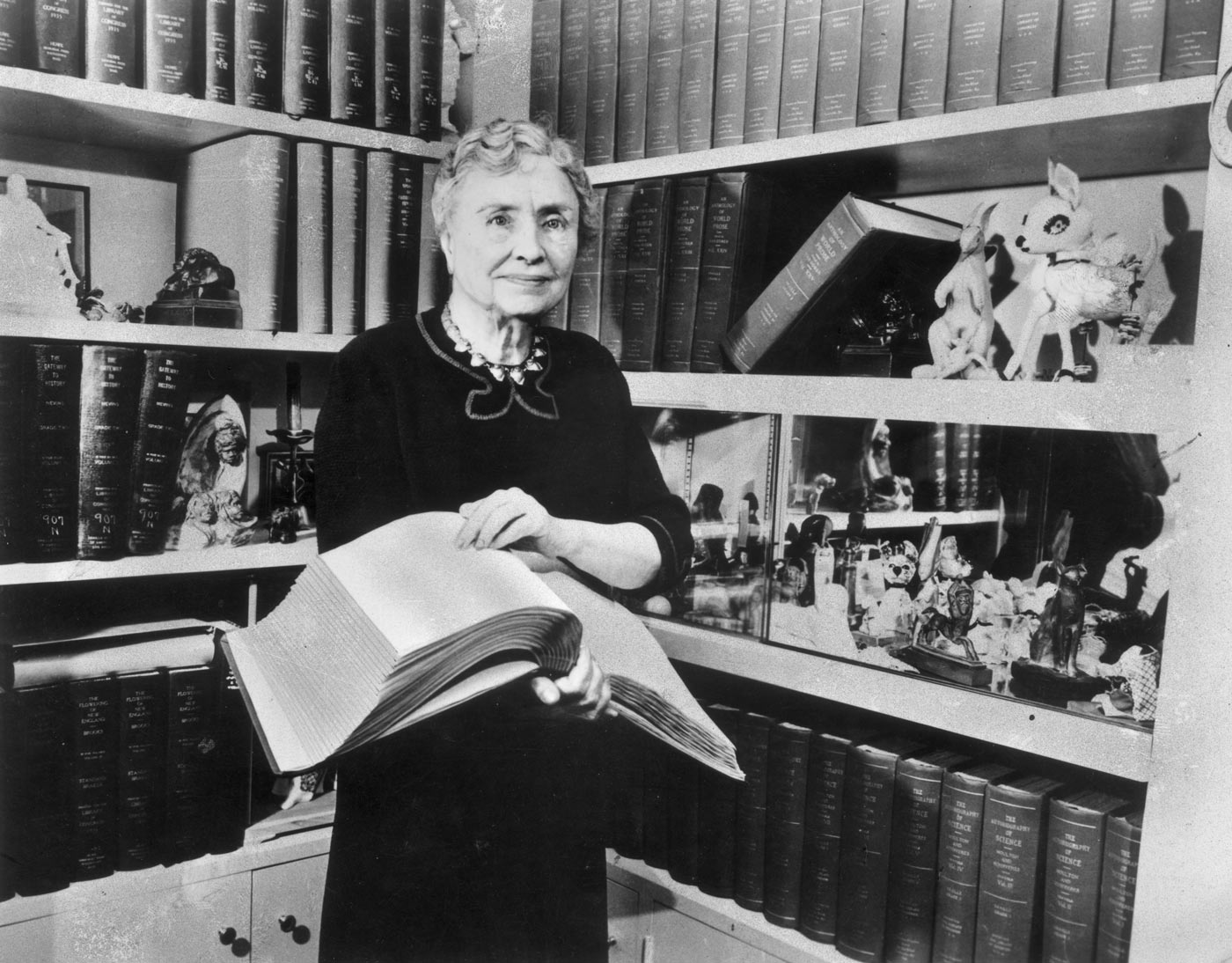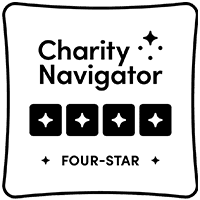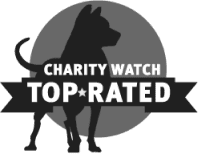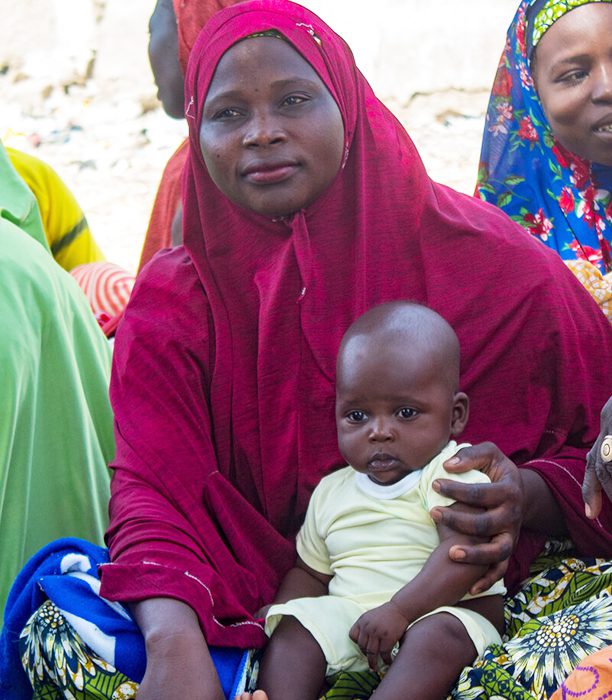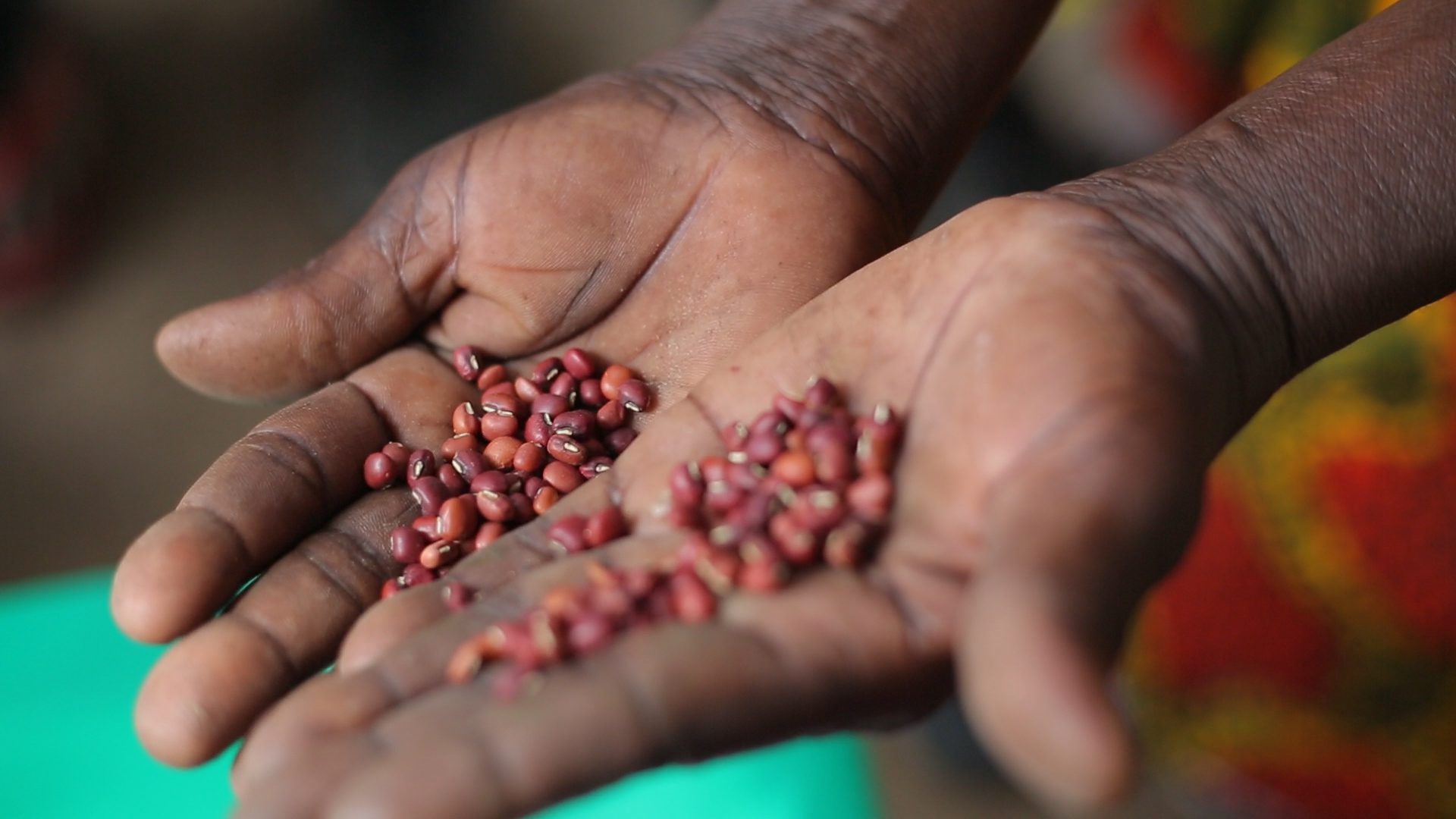
“Laying” The Groundwork For Health And Well-Being: From Poultry To Vegetables, Homestead Farming Empowers Families
While Helen Keller Intl has been investing in homestead farming for years, COVID-19 is showing us the value of that groundwork. We have spent over a decade preparing our most vulnerable communities for crisis, providing training and tools for agriculture, nutrition, hygiene, and entrepreneurial skills.
Village model farms in Nepal sustain families during the pandemic
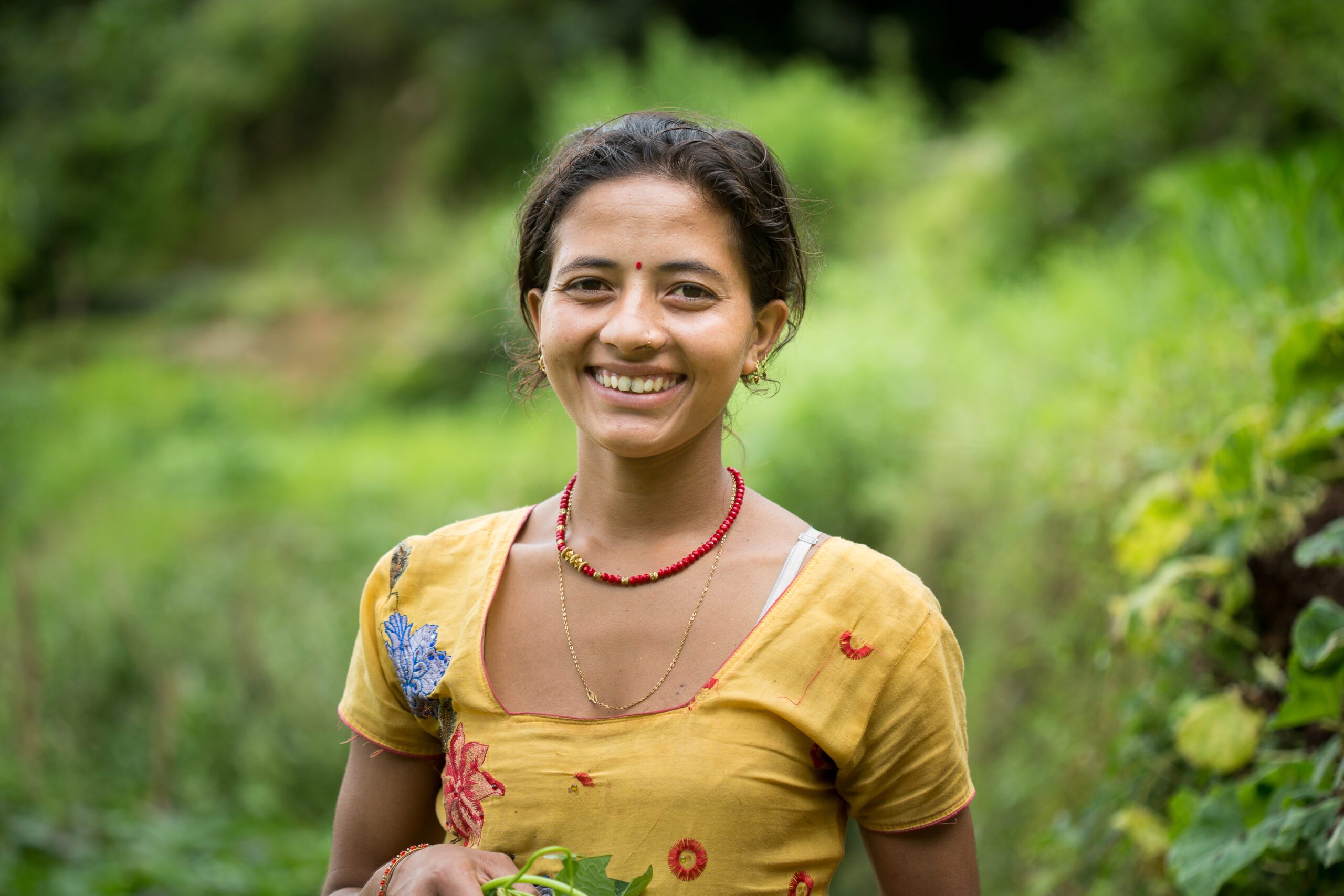
In 2013, Sarita Dotel Dhungana, from a small village of Sindupalchowk district in Nepal, was pregnant with her first child when a community health volunteer visited her to offer information about nutrition for her baby and growing family. Through the information she received, Sarita learned the importance of eating a diverse diet – which she could do by planting and maintaining her own small kitchen garden. When her daughter turned 16 months, Sarita attended a five-day Village Model Farm development training. Not only did this enable her to consume healthy vegetables every day but, by selling her produce in the market, also generated a new source of income for her family.
“After years of subsistence-level farming, I was able to bring in extra income for my family and take on new responsibilities outside my house”
Sarita Dotel Dhungana
Since then, Sarita has continued to seize opportunities for more training that improve both income and nutrition, including poultry training. There used to be a time in Sarita’s life when buying eggs for consumption was a luxury that her family couldn’t afford. Today, she has a poultry farm with over 800 chickens. Their business started with the five chicks she received from Helen Keller and USAID, and now Sarita and her husband share the responsibility of their poultry farm business. While many men in Nepal must go to India to find an income, Sarita and her family are running their business together.
Even during the COVID-19 pandemic, Sarita and her family have been faring well. Sarita receives poultry feeds and sells eggs and other products. “When you lead by example, you make it easy for others to follow”, says Sarita.
Henhouses in Senegal offer an ongoing sustainable business model for women
Eggs have also offered food security and income to families in Senegal, where Helen Keller and partners worked to offer a novel urban agricultural approach to the problems of childhood malnutrition. Chicken eggs are very rich in protein and micronutrients but are rarely consumed by most Senegalese families, due to the cost.
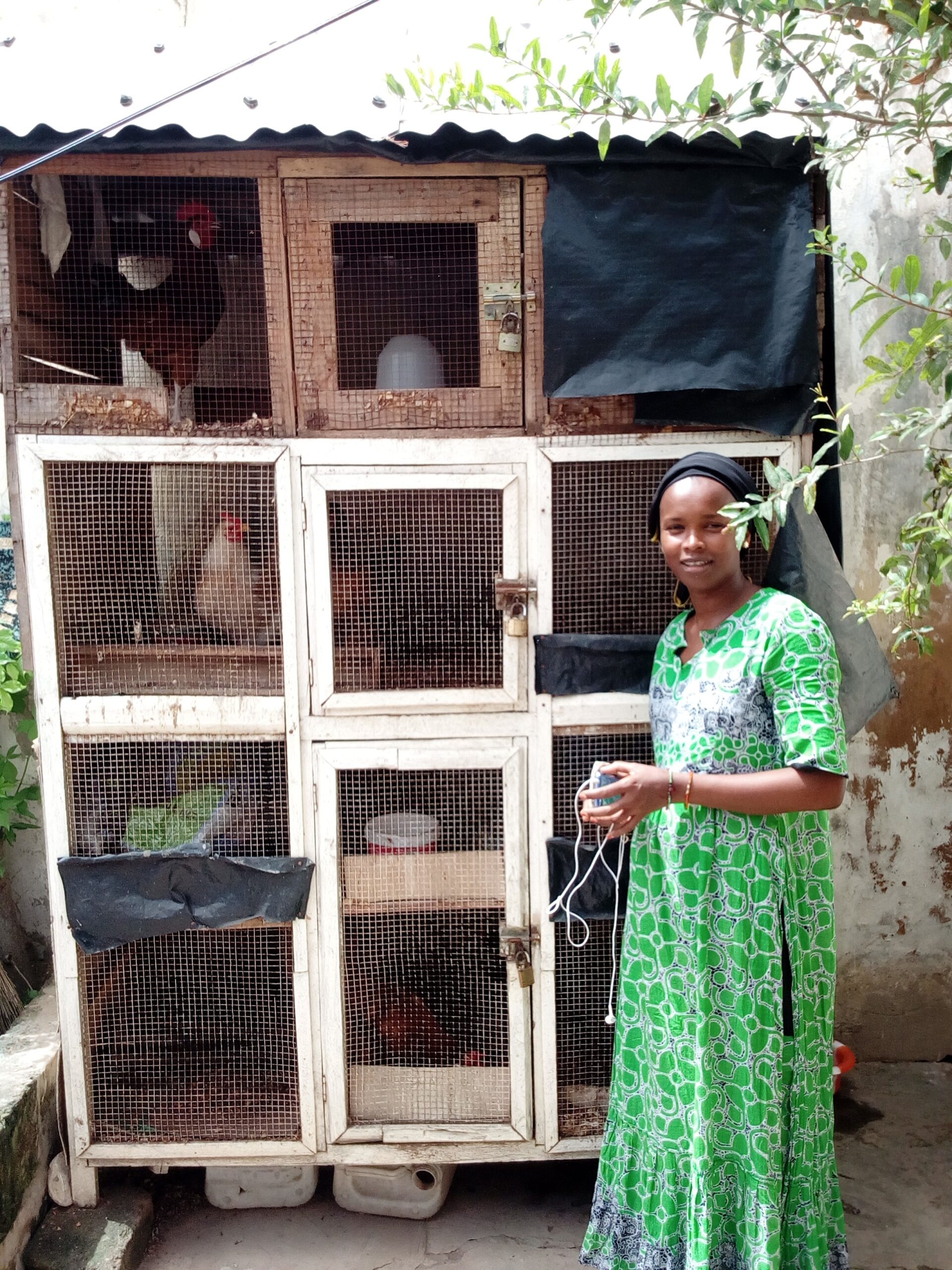
Helen Keller provided more than 1300 women with supplies to establish their own henhouses, laying hens and compact “table gardens” to grow vegetables in a small space. The henhouses were built from an innovative design that was adapted to raising chickens in urban areas, and participants received three laying hens and one rooster, personalized training, and veterinary support. This sustainable model taught women how to grow a flock, make feed, and vaccinate their chickens.
“A henhouse is a win-win investment: you produce much more than you put into it! When the chickens lay eggs, I use them to make breakfast for my family. The money I save from not having to buy breakfast, I use to buy chicken feed or vaccines.”
Aissatou Ba from Guédiawaye, who learned to raise poultry
Before, almost no women in the neighborhood owned chickens. Over the course of the project, flock size grew steadily: two years in, the average household was producing about six dozen eggs a month. Once the program ended, about 75% of participants continued to raise chickens, and consumption and sales have increased since the end of the project, with higher median revenues.
“The project ended, but I have found a great passion for raising chickens. I dream of having a huge henhouse, when I have my own house, to produce more,” says Aissatou Ba. “Many people still ask me if I can advise them on chicken raising—and some of them don’t even live in my neighborhood!”
Empowering and feeding families threatened by overfishing in Tanzania
Olivia lives in a rural village in Tanzania’s Lake District, where she once struggled to feed her family. Fishing was the most common local livelihood, including for her husband, but overfishing caused fish stocks to decrease drastically, making it difficult to earn a living.
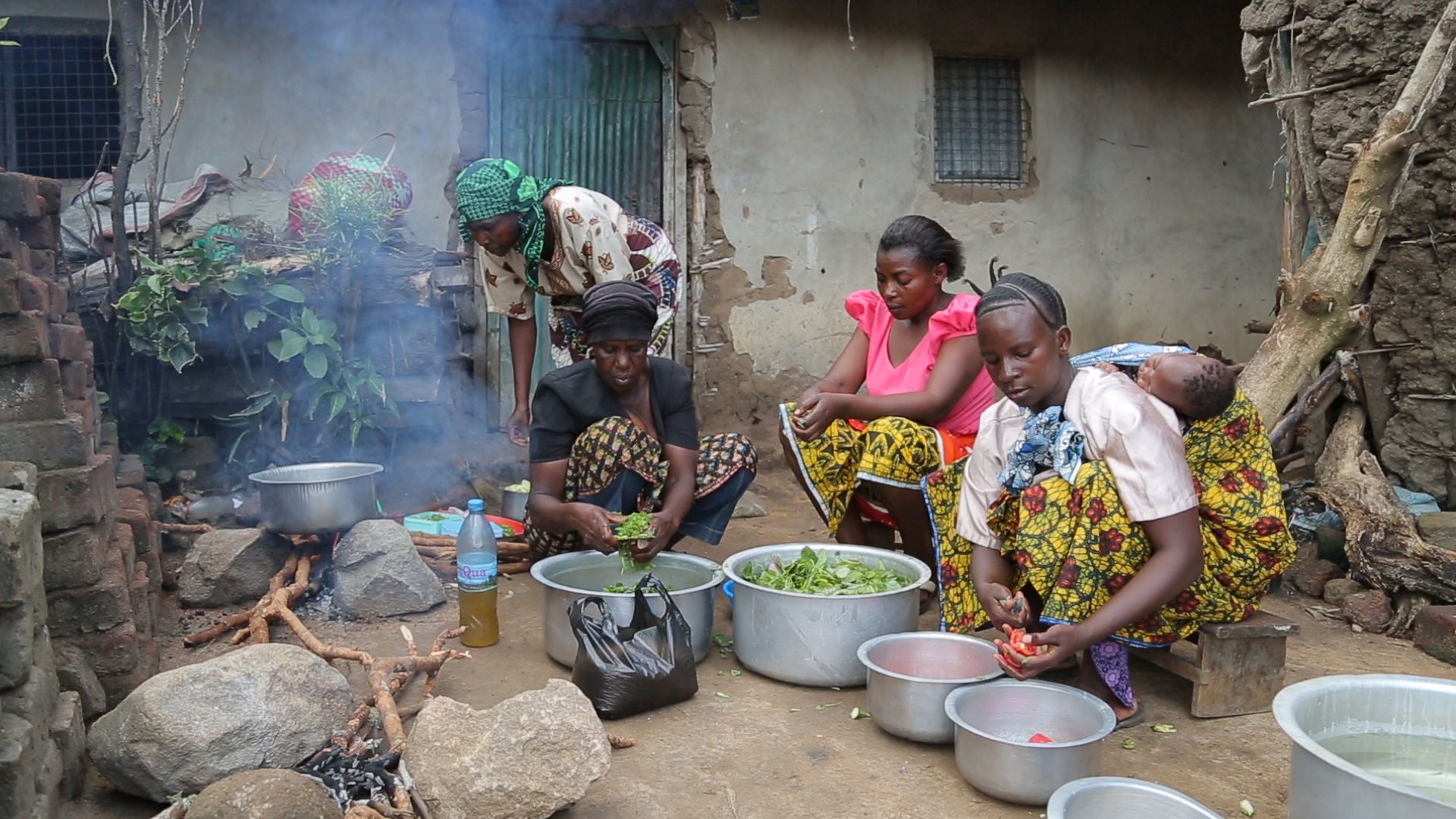
Helen Keller and partner organizations offered Olivia (and others in her community) seeds of locally adapted, nutrient-rich crop varieties, plus training on techniques for growing them. She learned about best practices for improving her families’ nutrition, including how to create nutritious family meals from her garden and poultry, how to avoid disease through good hygiene, and how to feed children who are recovering from illness.
“The neighbors all look at our garden when they pass by the road. They’re surprised, and I encourage them to start their own gardens.”
Olivia Ladislaus, a 29-year-old mother of three on Ukerewe Island
After the training, Olivia established a vegetable garden next to her house, from which she could harvest enough to feed her family on a daily basis. She even produced a surplus to sell at the market, carefully saving the profits to buy a goat, which cost her about 35,000 Tanzanian shillings (roughly $17.00), three young chickens, and seeds to expand her garden. She was soon a budding entrepreneur, raising goats and chickens and producing eggs to both sell and eat at home.

Our global community of compassionate individuals is already making a difference – but there’s so much more to be done. We can change the future if we respond effectively and powerfully now.
